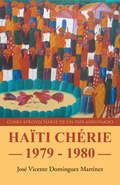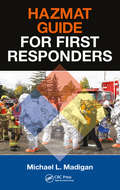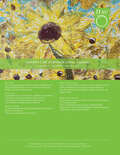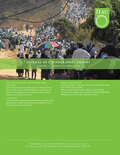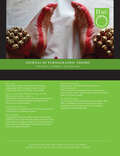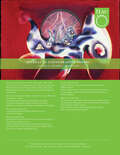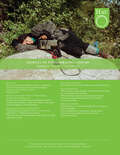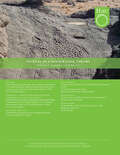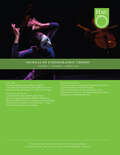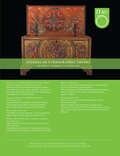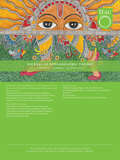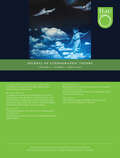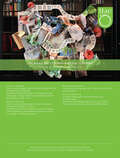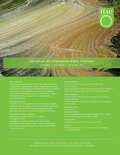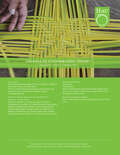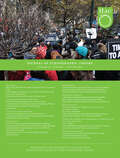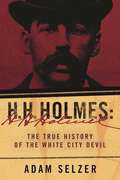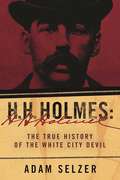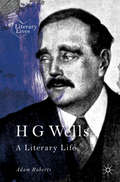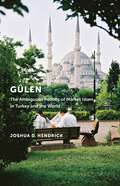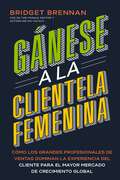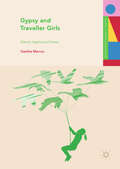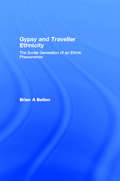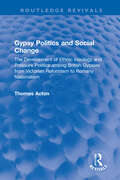- Table View
- List View
HAÏTI CHÉRIE 1979 - 1980: Cómo aprovecharse de un país arruinado
by José Vicente Domínguez MartínezEste libro explora y denuncia las difíciles condiciones de vida de los haitianos, presenciada por el autor durante su estancia en ese país y nos revela, al mismo tiempo, el sorprendente espíritu de un pueblo cuyo espíritu es más grande que la opresión. <P><P>Haití, 1979. Después de catorce años como oficial y capitán en buques mercantes, y a la sazón capitán de un buque factoría, J.V. Domínguez decide cambiar su vida y consigue ser nombrado director gerente de una empresa pesquera con base administrativa en el hermoso, pequeño y pobre Haití.
HAZMAT Guide for First Responders
by Michael L. MadiganThe goal of this book is to help train hazmat response teams and other responders in disaster training, techniques, and planning.The book will also help define and sharpen training plans and assumptions. Focusing on lessons learned from real-world experiences during actual disasters, the book will help to establish a well-trained professional 1st responder, individuals, and teams. Such lessons are emphasized so that planners and responders learn to anticipate how their community is likely to react under real disaster conditions, and plan accordingly.
HAU: Journal of Ethnographic Theory, volume 15 number 1 (Spring 2025)
by HAU: Journal of Ethnographic TheoryThis is volume 15 issue 1 of HAU: Journal of Ethnographic Theory. HAU: Journal of Ethnographic Theory, is an international journal which aims to situate ethnography as the prime heuristic of anthropology, and return it to the forefront of conceptual developments in the discipline. The journal is motivated by the need to reinstate ethnographic theorization in contemporary anthropology as a potent alternative to its "explanation" or "contextualization" by philosophical arguments, moves which have resulted in a loss of the discipline's distinctive theoretical nerve. By drawing out its potential to critically engage and challenge Western cosmological assumptions and conceptual determinations, HAU aims to provide an exciting new arena for evaluating ethnography as a daring enterprise for 'worlding' alien terms and forms of life, by exploiting their potential for rethinking humanity and alterity.
HAU: Journal of Ethnographic Theory, volume 14 number 3 (Winter 2024)
by HAU: Journal of Ethnographic TheoryThis is volume 14 issue 3 of HAU: Journal of Ethnographic Theory. HAU: Journal of Ethnographic Theory, is an international journal which aims to situate ethnography as the prime heuristic of anthropology, and return it to the forefront of conceptual developments in the discipline. The journal is motivated by the need to reinstate ethnographic theorization in contemporary anthropology as a potent alternative to its "explanation" or "contextualization" by philosophical arguments, moves which have resulted in a loss of the discipline's distinctive theoretical nerve. By drawing out its potential to critically engage and challenge Western cosmological assumptions and conceptual determinations, HAU aims to provide an exciting new arena for evaluating ethnography as a daring enterprise for 'worlding' alien terms and forms of life, by exploiting their potential for rethinking humanity and alterity.
HAU: Journal of Ethnographic Theory, volume 14 number 2 (Autumn 2024)
by HAU: Journal of Ethnographic TheoryThis is volume 14 issue 2 of HAU: Journal of Ethnographic Theory. HAU: Journal of Ethnographic Theory, is an international journal which aims to situate ethnography as the prime heuristic of anthropology, and return it to the forefront of conceptual developments in the discipline. The journal is motivated by the need to reinstate ethnographic theorization in contemporary anthropology as a potent alternative to its "explanation" or "contextualization" by philosophical arguments, moves which have resulted in a loss of the discipline's distinctive theoretical nerve. By drawing out its potential to critically engage and challenge Western cosmological assumptions and conceptual determinations, HAU aims to provide an exciting new arena for evaluating ethnography as a daring enterprise for 'worlding' alien terms and forms of life, by exploiting their potential for rethinking humanity and alterity.
HAU: Journal of Ethnographic Theory, volume 14 number 1 (Spring 2024)
by HAU: Journal of Ethnographic TheoryThis is volume 14 issue 1 of HAU: Journal of Ethnographic Theory. HAU: Journal of Ethnographic Theory, is an international journal which aims to situate ethnography as the prime heuristic of anthropology, and return it to the forefront of conceptual developments in the discipline. The journal is motivated by the need to reinstate ethnographic theorization in contemporary anthropology as a potent alternative to its "explanation" or "contextualization" by philosophical arguments, moves which have resulted in a loss of the discipline's distinctive theoretical nerve. By drawing out its potential to critically engage and challenge Western cosmological assumptions and conceptual determinations, HAU aims to provide an exciting new arena for evaluating ethnography as a daring enterprise for 'worlding' alien terms and forms of life, by exploiting their potential for rethinking humanity and alterity.
HAU: Journal of Ethnographic Theory, volume 13 number 3 (Winter 2023)
by HAU: Journal of Ethnographic TheoryThis is volume 13 issue 3 of HAU: Journal of Ethnographic Theory. HAU: Journal of Ethnographic Theory, is an international journal which aims to situate ethnography as the prime heuristic of anthropology, and return it to the forefront of conceptual developments in the discipline. The journal is motivated by the need to reinstate ethnographic theorization in contemporary anthropology as a potent alternative to its "explanation" or "contextualization" by philosophical arguments, moves which have resulted in a loss of the discipline's distinctive theoretical nerve. By drawing out its potential to critically engage and challenge Western cosmological assumptions and conceptual determinations, HAU aims to provide an exciting new arena for evaluating ethnography as a daring enterprise for 'worlding' alien terms and forms of life, by exploiting their potential for rethinking humanity and alterity.
HAU: Journal of Ethnographic Theory, volume 13 number 2 (Autumn 2023)
by HAU: Journal of Ethnographic TheoryThis is volume 13 issue 2 of HAU: Journal of Ethnographic Theory. HAU: Journal of Ethnographic Theory, is an international journal which aims to situate ethnography as the prime heuristic of anthropology, and return it to the forefront of conceptual developments in the discipline. The journal is motivated by the need to reinstate ethnographic theorization in contemporary anthropology as a potent alternative to its "explanation" or "contextualization" by philosophical arguments, moves which have resulted in a loss of the discipline's distinctive theoretical nerve. By drawing out its potential to critically engage and challenge Western cosmological assumptions and conceptual determinations, HAU aims to provide an exciting new arena for evaluating ethnography as a daring enterprise for 'worlding' alien terms and forms of life, by exploiting their potential for rethinking humanity and alterity.
HAU: Journal of Ethnographic Theory, volume 13 number 1 (Spring 2023)
by HAU: Journal of Ethnographic TheoryThis is volume 13 issue 1 of HAU: Journal of Ethnographic Theory. HAU: Journal of Ethnographic Theory, is an international journal which aims to situate ethnography as the prime heuristic of anthropology, and return it to the forefront of conceptual developments in the discipline. The journal is motivated by the need to reinstate ethnographic theorization in contemporary anthropology as a potent alternative to its "explanation" or "contextualization" by philosophical arguments, moves which have resulted in a loss of the discipline's distinctive theoretical nerve. By drawing out its potential to critically engage and challenge Western cosmological assumptions and conceptual determinations, HAU aims to provide an exciting new arena for evaluating ethnography as a daring enterprise for 'worlding' alien terms and forms of life, by exploiting their potential for rethinking humanity and alterity.
HAU: Journal of Ethnographic Theory, volume 12 number 3 (Winter 2022)
by HAU: Journal of Ethnographic TheoryThis is volume 12 issue 3 of HAU: Journal of Ethnographic Theory. HAU: Journal of Ethnographic Theory, is an international journal which aims to situate ethnography as the prime heuristic of anthropology, and return it to the forefront of conceptual developments in the discipline. The journal is motivated by the need to reinstate ethnographic theorization in contemporary anthropology as a potent alternative to its "explanation" or "contextualization" by philosophical arguments, moves which have resulted in a loss of the discipline's distinctive theoretical nerve. By drawing out its potential to critically engage and challenge Western cosmological assumptions and conceptual determinations, HAU aims to provide an exciting new arena for evaluating ethnography as a daring enterprise for 'worlding' alien terms and forms of life, by exploiting their potential for rethinking humanity and alterity.
HAU: Journal of Ethnographic Theory, volume 12 number 2 (Autumn 2022)
by HAU: Journal of Ethnographic TheoryThis is volume 12 issue 2 of HAU: Journal of Ethnographic Theory. HAU: Journal of Ethnographic Theory, is an international journal which aims to situate ethnography as the prime heuristic of anthropology, and return it to the forefront of conceptual developments in the discipline. The journal is motivated by the need to reinstate ethnographic theorization in contemporary anthropology as a potent alternative to its "explanation" or "contextualization" by philosophical arguments, moves which have resulted in a loss of the discipline's distinctive theoretical nerve. By drawing out its potential to critically engage and challenge Western cosmological assumptions and conceptual determinations, HAU aims to provide an exciting new arena for evaluating ethnography as a daring enterprise for 'worlding' alien terms and forms of life, by exploiting their potential for rethinking humanity and alterity.
HAU: Journal of Ethnographic Theory, volume 12 number 1 (Spring 2022)
by HAU: Journal of Ethnographic TheoryThis is volume 12 issue 1 of HAU: Journal of Ethnographic Theory. HAU: Journal of Ethnographic Theory, is an international journal which aims to situate ethnography as the prime heuristic of anthropology, and return it to the forefront of conceptual developments in the discipline. The journal is motivated by the need to reinstate ethnographic theorization in contemporary anthropology as a potent alternative to its "explanation" or "contextualization" by philosophical arguments, moves which have resulted in a loss of the discipline's distinctive theoretical nerve. By drawing out its potential to critically engage and challenge Western cosmological assumptions and conceptual determinations, HAU aims to provide an exciting new arena for evaluating ethnography as a daring enterprise for 'worlding' alien terms and forms of life, by exploiting their potential for rethinking humanity and alterity.
HAU: Journal of Ethnographic Theory, volume 11 number 3 (Winter 2021)
by HAU: Journal of Ethnographic TheoryThis is volume 11 issue 3 of HAU: Journal of Ethnographic Theory. HAU: Journal of Ethnographic Theory, is an international journal which aims to situate ethnography as the prime heuristic of anthropology, and return it to the forefront of conceptual developments in the discipline. The journal is motivated by the need to reinstate ethnographic theorization in contemporary anthropology as a potent alternative to its "explanation" or "contextualization" by philosophical arguments, moves which have resulted in a loss of the discipline's distinctive theoretical nerve. By drawing out its potential to critically engage and challenge Western cosmological assumptions and conceptual determinations, HAU aims to provide an exciting new arena for evaluating ethnography as a daring enterprise for 'worlding' alien terms and forms of life, by exploiting their potential for rethinking humanity and alterity.
HAU: Journal of Ethnographic Theory, volume 11 number 2 (Autumn 2021)
by HAU: Journal of Ethnographic TheoryThis is volume 11 issue 2 of HAU: Journal of Ethnographic Theory. HAU: Journal of Ethnographic Theory, is an international journal which aims to situate ethnography as the prime heuristic of anthropology, and return it to the forefront of conceptual developments in the discipline. The journal is motivated by the need to reinstate ethnographic theorization in contemporary anthropology as a potent alternative to its "explanation" or "contextualization" by philosophical arguments, moves which have resulted in a loss of the discipline's distinctive theoretical nerve. By drawing out its potential to critically engage and challenge Western cosmological assumptions and conceptual determinations, HAU aims to provide an exciting new arena for evaluating ethnography as a daring enterprise for 'worlding' alien terms and forms of life, by exploiting their potential for rethinking humanity and alterity.
HAU vol 9 num 1
by The University of Chicago PressThis is volume 9 issue 1 of HAU: Journal of Ethnographic Theory. HAU: Journal of Ethnographic Theory, is an international journal which aims to situate ethnography as the prime heuristic of anthropology, and return it to the forefront of conceptual developments in the discipline. The journal is motivated by the need to reinstate ethnographic theorization in contemporary anthropology as a potent alternative to its "explanation" or "contextualization" by philosophical arguments, moves which have resulted in a loss of the discipline's distinctive theoretical nerve. By drawing out its potential to critically engage and challenge Western cosmological assumptions and conceptual determinations, HAU aims to provide an exciting new arena for evaluating ethnography as a daring enterprise for 'worlding' alien terms and forms of life, by exploiting their potential for rethinking humanity and alterity.
HAU vol 10 num 2
by The University of Chicago PressThis is volume 10 issue 2 of HAU: Journal of Ethnographic Theory. HAU: Journal of Ethnographic Theory, is an international journal which aims to situate ethnography as the prime heuristic of anthropology, and return it to the forefront of conceptual developments in the discipline. The journal is motivated by the need to reinstate ethnographic theorization in contemporary anthropology as a potent alternative to its "explanation" or "contextualization" by philosophical arguments, moves which have resulted in a loss of the discipline's distinctive theoretical nerve. By drawing out its potential to critically engage and challenge Western cosmological assumptions and conceptual determinations, HAU aims to provide an exciting new arena for evaluating ethnography as a daring enterprise for 'worlding' alien terms and forms of life, by exploiting their potential for rethinking humanity and alterity.
H. H. Holmes: The True History of the White City Devil
by Adam SelzerAmerica's first and most notorious serial killer and his diabolical killing spree during the 1893 World's Fair in Chicago, now updated with a new afterword discussing Holmes' exhumation on American Ripper.H. H. Holmes: The True History of the White City Devil is the first truly comprehensive book examining the life and career of a murderer who has become one of America’s great supervillains. It reveals not only the true story but how the legend evolved, taking advantage of hundreds of primary sources that have never been examined before, including legal documents, letters, articles, and records that have been buried in archives for more than a century. Though Holmes has become just as famous now as he was in 1895, a deep analysis of contemporary materials makes very clear how much of the story as we know came from reporters who were nowhere near the action, a dangerously unqualified new police chief, and, not least, lies invented by Holmes himself. Selzer has unearthed tons of stunning new data about Holmes, weaving together turn-of-the-century America, the killer’s background, and the wild cast of characters who circulated in and about the famous “castle” building. This book will be the first truly accurate account of what really happened in Holmes’s castle of horror, and now includes an afterword detailing the author's participation in Holmes' exhumation on the TV series, American Ripper. Exhaustively researched and painstakingly brought to life, H. H. Holmes will be an invaluable companion to the upcoming Martin Scorsese and Leonardo DiCaprio movie about Holmes’s murder spree based on Erik Larson’s The Devil in the White City.
H. H. Holmes: The True History of the White City Devil
by Adam SelzerShares with readers America’s first and most infamous serial killer and his diabolical killing spree during the 1893 World’s Fair in ChicagoThe first comprehensive book following the life and career of H. H. HolmesA fascinating true story about a dark moment in Chicago’s historyH. H. Holmes: The True History of the White City Devil uncovers not only the true story of Holmes but also how the legend evolved. It uses hundreds of primary sources that have never been studied before. This includes letters, articles, legal documents, and records that have been tucked away in archives for more than 100 years. While H. H. Holmes is now as famous as he was in 1895, a thorough analysis of modern materials clarifies how much of the story as we know it came from reports who were far from the action, an incredibly unqualified new police chief, and lies from Holmes himself. This book is a tale of an outlaw. It covers Holmes’s own story with new insights. The author, Adam Selzer, has uncovered stunning new data about Holmes. He combines turn-of-the-century America, the crazy group of characters who were in and around the famous “castle” building, and the killer’s own background. This book is the first fully accurate account of what truly happened in Holmes’s horror castle. H. H. Holmes, with its exhaustive research and careful detail, is an irreplaceable partner to the upcoming Leonardo DiCaprio and Martin Scorsese movie about Holmes’s murder spree based on Erik Larson’s The Devil in the White City.
H V Evatt and the Establishment of Israel: The Undercover Zionist (Israeli History, Politics and Society #Vol. 36)
by Daniel MandelThe Minister for External Affairs, and the dominant force in the formation of Australian foreign policy for a crucial decade in the battle over Palestine (1941-1949), Herbert Vere Evatt played a central role in the Australian political response to Zionism and the conflict in Palestine. This book, which uses a variety of primary sources from Australia, Israel, the United Kingdom and the United States, provides a valuable study of Evatt the Zionist, as well as illuminating a fascinating political figure. This valuable book charts the debate in Australia over the creation of a Jewish state as well as providing a genuinely entertaining study of Evatt himself.
H G Wells: A Literary Life (Literary Lives)
by Adam RobertsThis is the first new complete literary biography of H G Wells for thirty years, and the first to encompass his entire career as a writer, from the science fiction of the 1890s through his fiction and non-fiction writing all the way up to his last publication in 1946. Adam Roberts provides a comprehensive reassessment of Wells’ importance as a novelist, short-story writer, a theorist of social prophecy and utopia, journalist and commentator, offering a nuanced portrait of the man who coined the phrases ‘atom bomb’, ‘League of Nations’ ‘the war to end war’ and ‘time machine’, who wrote the world’s first comprehensive global history and invented the idea of the tank. In these twenty-six chapters, Roberts covers the entirety of Wells’ life and discusses every book and short story he produced, delivering a complete vision of this enduring figure.
Gülen: The Ambiguous Politics of Market Islam in Turkey and the World
by Joshua D. HendrickThe "Hizmet" ("Service")Movement of Fethullah Gülen is Turkey’s most influential Islamic identitycommunity. Widely praised throughout the early 2000s as a mild and moderatevariation on Islamic political identity, the Gülen Movement has long been atopic of both adulation and conspiracy in Turkey. In Gülen, Joshua D. Hendrick suggests that the Gülen Movement shouldbe given credit for playing a significant role in Turkey's rise to globalprominence.Hendrick draws on 14 months of ethnographic fieldworkin Turkey and the U.S. for his study. He argues that the movement’s growth andimpact both inside and outside Turkey position both its leader and itsfollowers as indicative of a "post political" turn in twenty-firstcentury Islamic political identity in general, and as illustrative of Turkey’spolitical, economic, and cultural transformation in particular.
Gánese a la clientela femenina: Cómo transformar la experiencia del cliente para los consumidores más poderosos del mundo
by Bridget BrennanLa primera pregunta que le hacen los vendedores a Bridget Brennan, CEO de Female Factor, es siempre la misma: «¿Cómo puedo sobrevivir cuando los clientes tienen tantas opciones respecto de dónde comprar mi producto?». Si bien hay muchas estrategias para crecer en ventas, la que ella visualiza es la que muchos vendedores pasar por alto, o sea, la más obvia: hacer que la experiencia del cliente sea tan grande que quieran invertir su tiempo y dinero con usted. Dado que las mujeres manejan entre el 70% y el 80% del presupuesto de consumo familiar y le otorgan un valor tan alto a la experiencia del servicio, esto parece no tener demasiada ciencia. ¿Sentido común? Sí. ¿Práctica común? No. En esta era tecnológica que se acelera vertiginosamente, hay una necesidad urgente de un nuevo modelo de ventas dirigido a la consumidora que empuña hábilmente su smartphone, instruida en Google, amante de las marcas, y que a menudo conoce más sobre los productos que desea adquirir que el mismo vendedor que se para frente a ella. En este nuevo libro, Brennan brinda a los profesionales de ventas una guía para dominar las habilidades necesarias para la comercialización en el siglo XXI.
Gypsy and Traveller Girls: Silence, Agency and Power (Studies in Childhood and Youth)
by Geetha MarcusThis book presents the untold stories of Gypsy and Traveller girls living in Scotland. Drawing on accounts of the girls’ lives and offering space for their voices to be heard, the author addresses contemporary and traditional stereotypes and racialised misconceptions of Gypsies and Travellers. Marcus explores how the stubborn persistence of these negative views appears to contribute to policies and practices of neglect, inertia or intervention that often aim to ‘civilise’ and further assimilate these communities into the mainstream settled population. It is against this backdrop that the book exposes the girls’ racialised and gendered experiences, which impact on their struggles as young people to realise their potential and future prospects. Their narratives reveal the strengths of a distinct community, and the complexity of their silence and agency within the patriarchal structures that pervade the private spaces of home and the public spaces of education. This study also invites the reader to reflect on how the experiences of Gypsy and Traveller girls compares with young women from other social backgrounds, and questions if there is more that binds us than divides us as women in the modern world. Gypsy and Traveller Girls will be of interest to students and scholars across a range of disciplines, including sociology, education, gender studies and social policy.
Gypsy and Traveller Ethnicity: The Social Generation of an Ethnic Phenomenon
by Brian A BeltonThe book explores the notion of Gypsy and Traveller ethnicity and provides a critique of the conceptual basis of racial and ethnic categorisation. An analysis of the post-war housing situation is given in order to illustrate a connection between social and economic conditions, legislation affecting gypsies and travellers and the visibility and general consciousness of the gypsy and traveller population. The originality of the book lies in its argument that the position of gypsies and travellers largely arises out of social conditions and interaction rather than political, biological or ideological determinants. It puts forward the notion of an ethnic narrative of traveller identity and illustrates how variations of this have been defensively deployed by some travellers and elaborated on by theorists. Belton focuses on the social generation of travellers as a cultural, ethnic and racial categorization, offering a rational explanation of the development of an itinerant population that is less ambiguous and more informative in terms of the social nature of the gypsy and traveller position than interpretations based on 'blood', 'breed', 'stock', ethnicity or race that dominate the literature.
Gypsy Politics and Social Change: The Development of Ethnic Ideology and Pressure Politics among British Gypsies from Victorian Reformism to Romany Nationalism (Routledge Revivals)
by Thomas ActonThis book, first published in 1974, analyses the position of the Gypsies in Britain in the twentieth century, and assesses its significance in their overall history. Two dramatic shifts in Government policy towards the Gypsies are examined – in the 1880s and the 1960s – as are the changes in the stereotype of the ‘true Gypsy’. Dr Acton traces the developments of attitudes and economic conditions that gave rise to the 1970s increase in interest in Gypsies, and discusses the concomitant political and pressure group activity. He gives an account of the historical background to modern Gypsy politics; describes the postwar situation of the Gypsies in England and Wales, including pro-Gypsy pressure group activity up to 1965, and goes on to cover the campaigns of the Gypsy Council, including a sociological assessment of its work. He considers these aspects of Gypsy life in the light of modern sociological theory on minorities and race relations.
